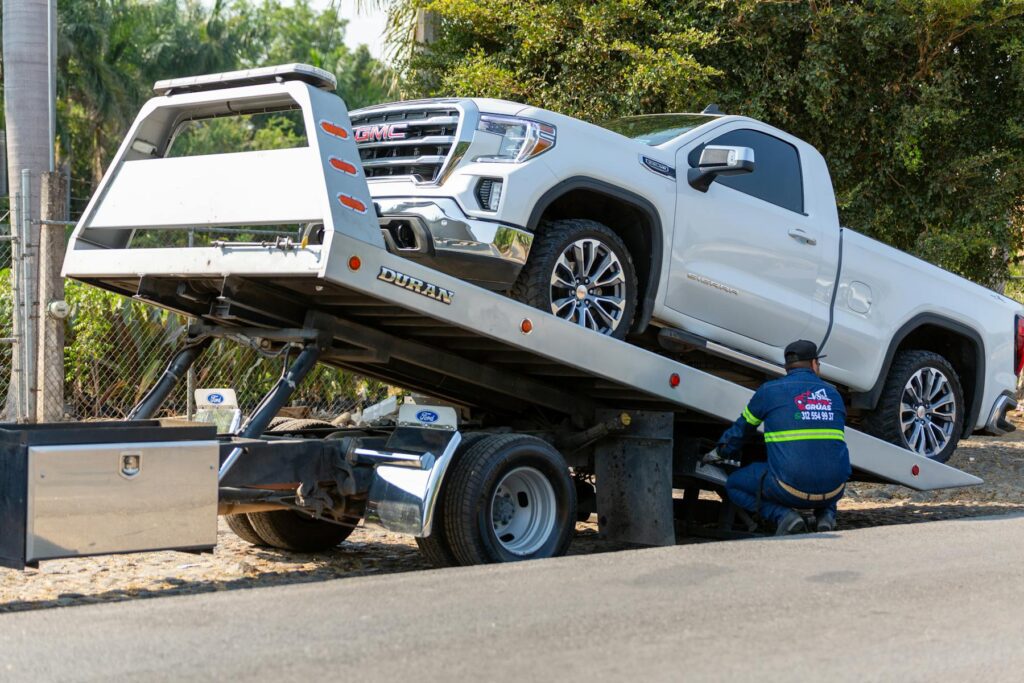
Towing is a common necessity for many vehicle owners, whether it’s for moving a car after a breakdown, transporting a vehicle to a new location, or during recreational activities. However, understanding the impact of towing on your vehicle is crucial for ensuring its longevity and performance. When a vehicle is towed, various factors come into play that can affect its mechanical systems and overall condition. This article delves into what happens when your vehicle is towed, how it can impact different parts of the vehicle, and what you need to know to protect your investment. By exploring these aspects, we aim to provide valuable insights that will help you make informed decisions about towing and vehicle maintenance.
Summary
The Basics of Towing
Types of Towing
Towing comes in several methods, each suited to different types of vehicles and situations. Understanding these methods can help you choose the right one for your needs and ensure minimal impact on your vehicle.
- Flatbed Towing: This method involves loading the entire vehicle onto a flatbed truck. It is considered the safest option for transporting vehicles as all wheels are off the ground, reducing stress on the vehicle’s drivetrain and suspension.
- Dolly Towing: A dolly lifts the front or rear wheels of the vehicle off the ground while the other set remains on the road. This method is often used for front-wheel-drive vehicles but can cause additional wear on the towed wheels and drivetrain.
- Hook-and-Chain Towing: This traditional method uses chains to secure the vehicle, with the tow truck lifting the front or rear wheels. It is less common today due to potential damage to the vehicle’s body and suspension.
Common Equipment
Several key pieces of equipment are used in towing, each with its own impact on the vehicle being towed.
- Tow Hitches: These are installed on the towing vehicle and are essential for connecting the trailer or tow dolly. Properly installed and maintained tow hitches ensure secure and stable towing.
- Tow Chains and Straps: Used to secure the vehicle during towing, these should be checked regularly for wear and tear to prevent accidents or damage.
- Tow Bars: A tow bar connects the towed vehicle to the towing vehicle and is commonly used in recreational vehicle (RV) towing. Ensuring proper alignment and connection helps prevent damage.
How Towing Affects Your Vehicle
Impact on Suspension and Tires
When a vehicle is towed, its suspension system and tires can experience significant stress. For example, in dolly towing, the towed wheels bear much of the vehicle’s weight, leading to potential tire wear and suspension strain. Flatbed towing minimizes this impact by keeping all wheels off the ground, but improper loading can still cause issues.
Engine and Transmission Stress
The engine and transmission can also suffer from towing. In hook-and-chain towing, the vehicle’s drivetrain remains engaged, which can cause additional wear and overheating, especially if the vehicle is towed for long distances. Even with flatbed towing, if the vehicle is not properly secured, vibrations and movements can impact the engine and transmission systems.
Possible Wear and Tear
Towing can lead to various types of wear and tear, including:
- Tire Damage: Prolonged towing, especially in incorrect conditions, can cause uneven tire wear or damage.
- Suspension Issues: Overloading or improper towing can strain the suspension, leading to potential misalignment or damage.
- Drivetrain Stress: For vehicles with their wheels on the ground, the drivetrain can endure excessive strain, leading to potential issues with gears and bearings.
Case Study: The Effects of Towing on a Classic Car
Case Study Overview
In a recent case involving a vintage 1975 Ford Mustang, the vehicle was towed from a restoration shop to a car show using a flatbed tow truck. Despite the flatbed method being one of the safest, the vehicle still encountered several issues due to improper securing and long-distance transport.
Issues Encountered
- Suspension Damage: During transport, the Mustang’s suspension system was affected due to inadequate securing, causing misalignment upon arrival.
- Tire Wear: The tires, although off the ground, showed signs of wear from vibrations and minor shifting during transport.
- Engine Overheating: The vehicle’s engine experienced minor overheating, likely due to improper handling of the vehicle during loading and unloading.
Resolution
The issues were addressed as follows:
- Suspension Realignment: The Mustang underwent a thorough suspension realignment at a specialized shop.
- Tire Replacement: The affected tires were replaced, and the vehicle was inspected for any additional damage.
- Engine Cooling Check: The engine was serviced to ensure that no lasting damage had occurred and that cooling systems were functioning properly.
Solutions and Best Practices
Preventive Measures
To minimize the impact of towing on your vehicle, consider the following preventive measures:
- Regular Maintenance: Ensure your vehicle is well-maintained before towing. This includes checking the suspension, tires, and drivetrain to prevent unexpected issues.
- Proper Securing: Use appropriate towing equipment and techniques to secure your vehicle properly. For flatbed towing, ensure the vehicle is evenly distributed and securely strapped down.
- Use of Quality Equipment: Invest in high-quality tow hitches, chains, and straps to reduce the risk of damage during towing. Regularly inspect and replace worn-out equipment.
Repair and Maintenance Tips
If towing-related issues do arise, follow these tips to address them:
- Inspection and Diagnosis: Have a professional inspect your vehicle to diagnose any damage caused by towing. This can help in identifying specific issues and preventing further damage.
- Timely Repairs: Address any damage promptly to avoid long-term consequences. Regular servicing can help maintain vehicle performance and safety.
- Cooling System Check: After towing, especially for long distances, check the vehicle’s cooling system to ensure it is functioning correctly and has not been compromised.
Conclusion
In summary, understanding the impact of towing on your vehicle is essential for maintaining its condition and performance. From the strain on the suspension and tires to potential engine and transmission stress, being aware of these factors can help you make informed decisions about towing methods and practices. By following preventive measures and addressing any issues promptly, you can mitigate the risks associated with towing and ensure your vehicle remains in top shape. Proper care and attention during towing can make a significant difference in preserving your vehicle’s longevity and performance.
